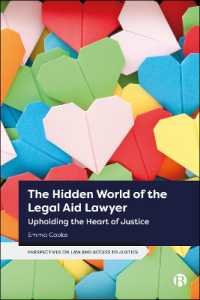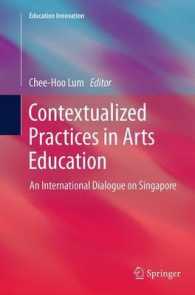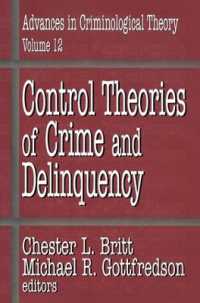Full Description
The second edition of this textbook provides expanded and updated guidance on the process of psychoeducational assessment and report writing for children in grades K-12. It casts the entire process within a newly proposed evidence-based psychoeducational assessment and report writing framework, and explains how to convey results through detailed, well-written reports. The new edition guides readers, step by step, through the assessment process - collecting data, writing reports, and communicating conclusions - for students with conditions spanning the range of IDEA classifications. Chapters offer a broad understanding of assessment and communication skills as well as the ethical, legal, cultural, and professional considerations that come with psychoeducational evaluation. In addition, chapters significantly expand on the coverage of learning disabilities, autism spectrum, intellectual disabilities, gifted, and other health-impaired and emotional disturbance assessment. The text updates sample reports from the previous edition, offering annotated commentary in the report explaining salient points and major decisions, and incorporates additional report samples to demonstrate fully the assessment and report writing process.
Key topics addressed in the revised and expanded edition include:
Psychoeducational assessment and report writing in school and clinic settings.
Interview formats from various perspectives, including caregivers/parents, teachers, and students.
Assessment of culturally and linguistically diverse youth.
Assessment of social, emotional, behavioral and mental health difficulties that may affect students' educational functioning.
Common academic difficulties, including reading, writing and mathematics.
Common recommendations and accommodations for behavioral, social, emotional, and learning needs.
Incorporation of response-to-intervention/curriculum based assessment data into the psychoeducational report.
Psychoeducational Assessment and Report Writing, 2nd Edition, is an essential textbook for graduate students as well as researchers, professors, and professionals in child and school psychology, educational assessment, testing, and evaluation, social work, and related disciplines.
Contents
Section 1. Overview of the Psychoeducational Assessment and Report Writing Process.- Chapter 1. Purpose of Psychoeducational Assessment and Report Writing.- Chapter 2. A Newly Proposed Framework and a Clarion call to Improve Practice.- Chapter 3. The Psychoeducational Assessment Process.- Chapter 4. Interviewing and Gathering Data.- Chapter 5.- Observing the Child.- Chapter 6. General Guidelines on Report Writing.- Section 2. Section-by-Section Report Writing Guidance.- Chapter 7. Identifying Information and Reason for Referral.- Chapter 8. Assessment Methods and Background Information.- Chapter 9. Assessment Results and Organization.- Chapter 10. Conceptualization and Classification.- Chapter 11. Summary and Recommendations.- Section 3. Guidance Regarding Psychoeducational Assessment of IDEA Categories Including Sample Reports.- Chapter 12. Learning Disabilities.- Chapter 13. Autism.- Chapter 14. Emotional Disturbance.- Chapter 15. Intellectual Disabilities.- Chapter 16.Other Health Impaired.- Chapter 17. Miscellaneous IDEA Categories and Section 504.- Section 4. Oral Reporting and Miscellaneous Topics in Psychoeducational Assessment and Report Writing.- Chapter 18. Assessment and Identification of Gifted Youth.- Chapter 19. The Use of Curriculum-Based Measures/Response to Intervention within the Context of Psychoeducational Assessment and Report Writing.- Chapter 20. Culturally and Linguistically Diverse Learners.- Chapter 21. Oral Reporting.- Chapter 22. Legal, Ethical and General Issues in Psychoeducational Assessment and Report Writing.








